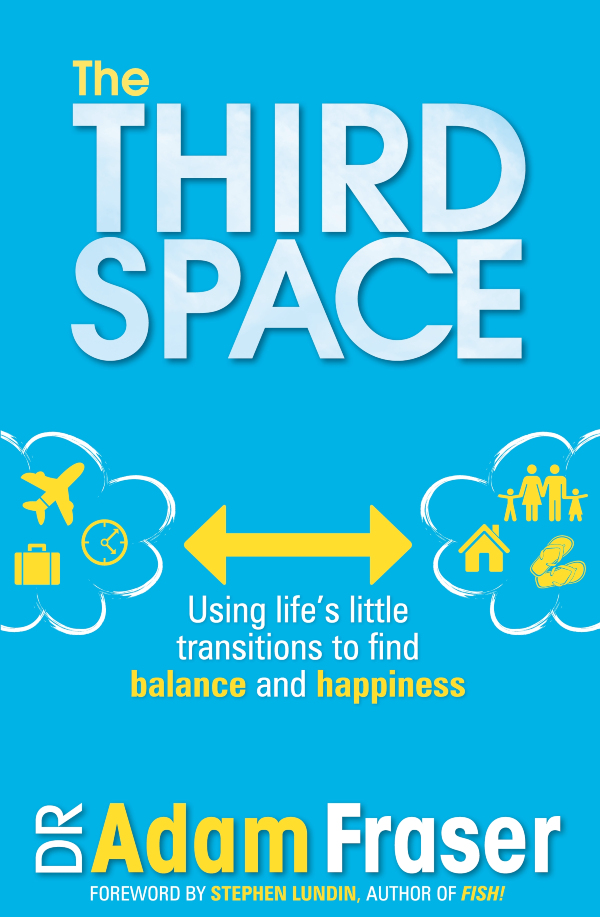As a human performance researcher and consultant, Dr Adam Fraser works with a lot of successful men from CEOs to top entrepreneurs. “They often say their greatest regret is they were a jerk to their family,” he says.
“They’d say to me, ‘If I had my time over again, I’d have tried to be a better version of myself when I was at home. Too often, I’d carry stress home or I’d come back and my head was still at work and I wouldn’t be present.”
None of this is particularly surprising. People who manage to shin up the career ladder invariably do so by logging insane hours and taking on more and more responsibility. The higher up you get, the more the pressure builds. A natural by-product of all this is stress.
Unfortunately, it’s hard to stop this from infecting your home-life. In his research, Dr Fraser found that most people tend to carry the mood of their previous task into the next one. “We call this negative spill,” he says. “So if you’re a a dad, who’s had a really shit day at work then you come home and take it out on your kids or your partner.”
To stop this toxic transference. Dr Fraser believes the best tactic to park your stress is by mastering the “micro-transition” between work and home. He calls this “the third space” and wrote an entire book on its life-changing value.

The key to all this, Dr Fraser suggests, is to establish some form of transition ritual at the end of your working day that signals to your brain you’re clocking off. This might involve listening to a podcast on your commute, stopping at the gym on the way back from work, or simply changing out of your work clothes and jumping in the shower as soon as you get home.
What you choose to do is completely up to you. But the aim of the transition ritual is to create a circuit breaker between work and home to help you be more present and stop your work stress from poisoning your home life.
Yet how does that all work during Covid? After all, most of us are now working from home and no longer have that physical distance separating us from our jobs. The opportunity to stage-manage a consciously beneficial transition is suddenly much harder when the commute home may occur in a matter of paces.
“For people that are now working from home, the third space is even more important,” Dr Fraser says. “You have to take the concept and ask yourself how do I shift gears? If I’ve been homeschooling my kids, for example, how do I move out of that mentality and become fun, playful dad again?”
According to Dr Fraser’s research on the subject, the most effective form of transition has three key components.
1. REFLECT
Before you shut your laptop to confront a room full of screaming kids, take a moment to reflect on your working day and review what’s happened. The point of this mental processing is to try and minimise any negative carry-over and maximise any positive experience.
To avoid getting pulled into a morbid tailspin about the size of your to-do list or your idiot boss, Dr Fraser recommends “you focus on what went well, what you did achieve and how you got better today. That will help put you into a much more optimistic mindset.”
Taking this moment of reflection, he explains, is designed to encourage you to stay in a more constructive headspace. Something you’ll no doubt need in the looming stand-off over your child’s refusal to eat their fishfingers.
2. REST
It would be nice at this stage to take a quick power-nap so you’re fully energised before attempting to cajole your child through dinner, bath and bedtime. Obviously, that’s not going to happen.
Nevertheless, Dr Fraser still recommends taking a strategic pause to calm your mind and compose yourself.
“Take a moment to just rest and give yourself a tiny bit of mental space, even if it’s just a minute of deep breathing,” Dr Fraser says.
3. RESET
Finally, it’s time to mentally prepare for the domestic upheaval that awaits. Align your mindset with your next scenario and ask yourself what your intention is. “Think about what kind of interaction do I want to have?” Dr Fraser says. “What impact do I want to have? How do I have to behave in order to achieve that.”
Setting these mental parameters will help you to stay calm when your son spills another glass of milk on the carpet or you overcook the paste because you’re still trying to get chewing gum out of your daughter’s hair.
There’s no doubt that working from home can often feel claustrophobic and intense as the demands of your domestic and professional life collide. That’s why it’s vital to create a bit of breathing room to make the situation feel (a little) more manageable.
“You can use the third space to leave your workday behind,” Dr Fraser insists. “But most importantly to show up with the right mentality for your family.”
